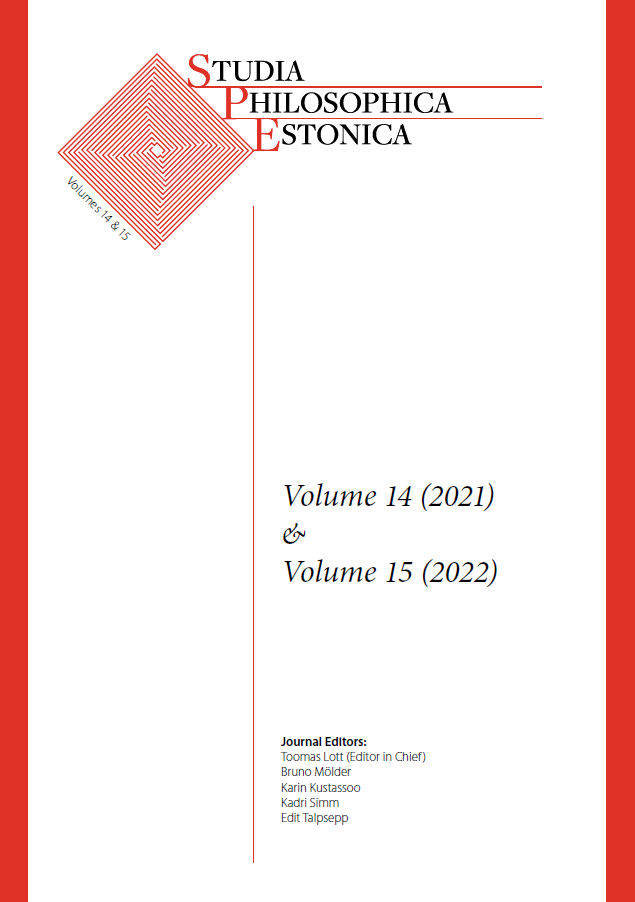Why is God (still) a ‘He’?
DOI:
https://doi.org/10.12697/spe.2021.14.01Keywords:
God, religion, gender, metaphor, philosophyAbstract
I consider the question of why Christians still use a male God pronoun, given that we do not know God directly. The biology argument is unsound because the premise that God is a male being is false or at least unknowable. The convenience argument (it would be greatly inconveniencing to change the God pronoun) is not entirely convincing because we have once migrated from referring to mankind as a ‘he’ to a ‘she’ and then to using the two interchangeably. The fact that all references to God are metaphorical because we do not know God directly is considered, but does not remove the concern why a male rather than a female metaphorical preference. The feminist approach is considered, but is not entirely convincing since it simply asks us to change the God pronoun from a “He” to a “She”, a transfer that has no clear rationale or principled argument. And the gender fairness argument (we should call God a “He” and “She” interchangeably) is intellectually sound but practically demoralizing (with reasons) in the context of the activity of worshipping God. In sum, the convenience argument seems to win by default: it is not only inconveniencing, but also religiously inconveniencing to refer to God with interchangeable pronouns.
References
Aquinas, T. (1947). Summa theologica. New York: Benziger Bros.
Christ, Carol P. 2003. She Who Changes: Re-Imgaining the Divine in the World. New York, NY and Hampshire, England: Palgrave Macmillan.
Craighead, Meinrad. 1986. The Mother’s Songs: Images of God the Mother. New York: Paulist Press.
Hartstone, Charles. 1977. The Zero Fallacy and Other Essays in Neoclassical Philosophy. Edited by Mohammad Valady. Chicago and La Salle, Illinois: Open Court.
Hartstone, Charles. 1984. Omnipotence and Other Theological Mistakes. Albany: State University of New York Press.
Hartstone, Charles. 1987. Wisdom as Moderation: A Philosophy of the Middle Way. Albany: State University of New York Press.
Johnson, Elizabeth. 1984. 'The Incomprehensibility of God and the Image of God as Male and Female,' Theological Studies 45, 441 – 465.
Elizabeth Johnson. 1992. She Who Is: The Mystery of God in Feminist Discourse. New York: Crossroad.
McFague, S. (1982). Metaphorical Theology: Models of God in Religious Language. Philadelphia: Fortress Press.
McFague, S. 1987. Models of God: Theology for an Ecological, Nuclear Age. Philadelphia: Fortress Press.
Rea, Michael. "Gender as a divine attribute." Religious Studies 52.01 (2016): 97-115.
Soskice, J. (1985). Metaphor and religious language. Oxford: Clarendon Press.
Ruether, Rosemary Radford. 1983. Sexism and God-Talk: Toward a Feminist Theology. Boston: Beacon Press.
Sameth, Mark. Is God Transgender? The New York Times. Opinion, 12 August. Available at: https://www.nytimes.com/2016/08/13/opinion/is-god-transgender.html (accessed 21 April 2020)





